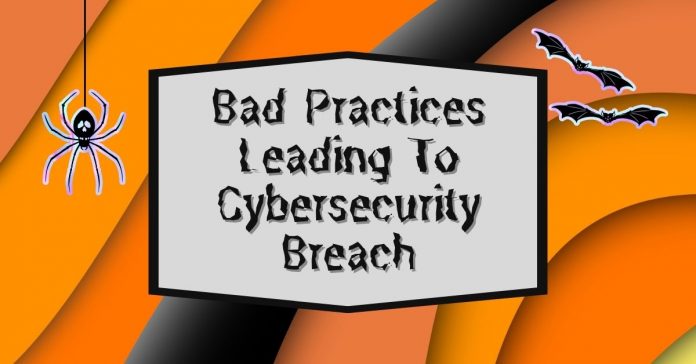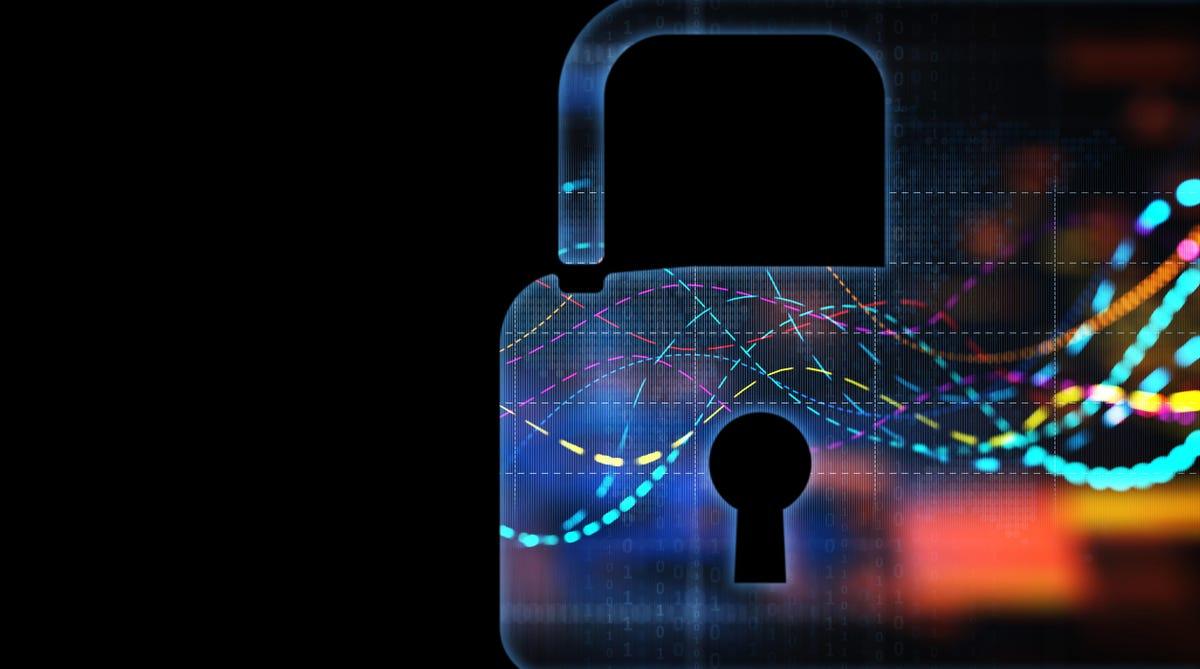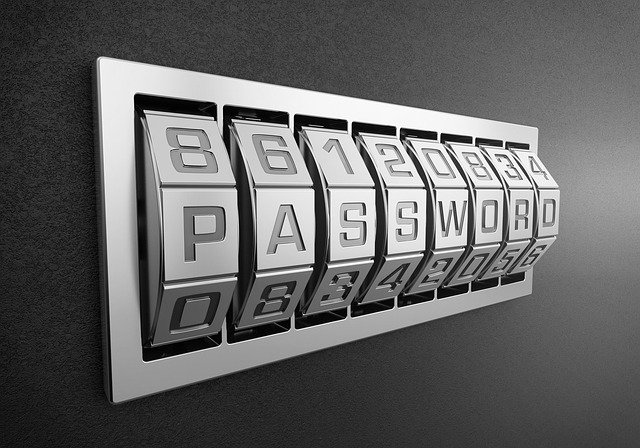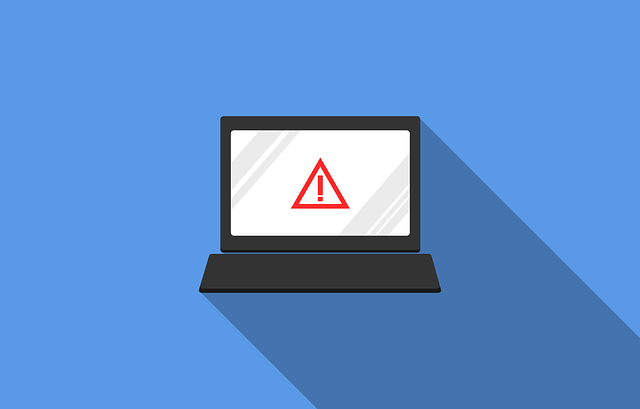Here, I will show you bad practices leading to cybersecurity breach…
More businesses, government agencies, nonprofits, retailers, corporations, and small businesses operate online than ever. In the meantime, hacker groups are forming all across the globe. Cyberattacks have become commonplace on the World Wide Web.
Whether it is an iPhone, laptop, personal computer, security system, or Internet router, attackers are working around the clock to look for vulnerabilities.
Every website has cyber risks. Attackers target specific individuals, politicians, law enforcement officers, federal workers, public educators, and more.
If the firewall, software, or password is weak, a breach is just waiting around the corner. There are good practices that stock cyberattacks in their tracks. There are also bad practices that lead to cybersecurity breaches. Learn more by reading the content provided below.
Table of Contents
#1 Not Updating Software
A common oversight that leads to cybersecurity breaches is software update alerts. Ignoring a software update request is easy because the process can be annoying. Software updates not only take up precious time but also requires a system restart, which sucks up even more time.
There is no doubt that software updates are a pain. However, ignoring a software update alert is one of the worst things you can do for your database or website. The main reason for updates is to bring the software up-to-date.
Outdated software is a vulnerability in an operating system. As mentioned above, hackers work 24 hours daily, 7 days a week, searching for software vulnerabilities. Keep your software updated to lower your risk of becoming the next cybersecurity breach victim.
#2 Utilizing Weak Passwords
What is the primary purpose of a password? A password is a unique phrase, word, set of numbers, letters, or both. People utilize passwords to access all their Internet-connected devices, home and/or business networks, websites, and other systems.
If you are confused about the meaning of a password, you can compare it to a lock combination. A combination is a set of numbers that provide access to a safe, safety deposit box, bicycle lock, front door, and other devices. A password is virtually the same thing as a lock combination.
Skilled hackers have years of experience in cracking passwords. The weaker the password, the easier it is to crack. Cybersecurity experts recommend passwords utilizing a mixture of letters, numbers, and unique characters. A weak password would be your name, child’s birthday, wedding date, and phone number.
It is easy to get into the habit of utilizing the same password for all your devices. This is a major no-no that makes a hacker’s job easy. It is also recommended to never store a password on paper or online. It is not unusual for people to send themselves their passwords via email or other online messaging systems. Hackers will gain access to your passwords if the email database is breached.
Last but not least, never share passwords with siblings, friends, partners, co-workers, or children. Do you know how many people made the mistake of sharing their passwords?
Utilize strong passwords to access your email, website, bank account, and other online platforms. Even if you play gambling sports, your passwords need to be strong.
#3 Clicking On Unfamiliar Links
Phishing is the practice of sending emails to groups or individuals. A phishing email is difficult to identify because it shares many of the same features as a reputable company or organization email.
The attacker’s goal, in this case, is to entice the recipient to click the internal link. People unfamiliar with phishing emails will click on the link without giving it a second thought. Clicking on a malicious link could compromise your entire database.
More cybersecurity breaches are linked to phishing accounts than any other fraudulent practice. Your personal information is fair gain once the hackers gain admission to your database.
Downsides Of Cybersecurity Breaches
Cybersecurity breaches have a boatload of downsides for the victim. On the other hand, the attackers are rewarded with your personal information. You may be surprised to discover the devastating losses these victims endure. Some victims have been pushed into financial, mental, and physical devastation.
An individual’s private data, such as social security number, driver’s license number, birth date, full name, mother’s maiden name, and bank account numbers mean everything. Once it is breached, you may feel like nothing else is left.
FAQs on Bad Practices Leading to Cybersecurity Breaches
What are some common bad practices that can lead to a cybersecurity breach?
- Weak passwords and lack of multi-factor authentication: Using easily guessable passwords or failing to enable multi-factor authentication leaves systems vulnerable to unauthorized access.
- Clicking on suspicious links and attachments: Phishing emails and malicious links can trick users into downloading malware or revealing sensitive information.
- Ignoring software updates: Unpatched software contains known vulnerabilities that hackers can exploit.
- Using public Wi-Fi without a VPN: Public Wi-Fi networks are often insecure and can be used to intercept your data.
- Sharing sensitive information online: Avoid sharing personal or financial information on insecure websites or social media.
- Not having a data backup plan: If a breach occurs, a backup plan allows you to recover your data quickly and minimize damage.
What are the biggest risks associated with these bad practices?
These bad practices can lead to a variety of consequences, including:
- Data breaches: Hackers can steal sensitive information like financial data, personal records, and intellectual property.
- Malware infections: Malware can damage your systems, disrupt operations, and hold your data hostage.
- Ransomware attacks: Ransomware encrypts your files, making them inaccessible until you pay a ransom.
- Reputational damage: A cybersecurity breach can damage your brand reputation and erode customer trust.
How can I protect myself from these risks?
- Practice good password hygiene: Create strong, unique passwords and enable multi-factor authentication wherever possible.
- Be cautious about online activity: Be wary of suspicious emails, links, and attachments.
- Keep software updated: Install updates promptly to patch vulnerabilities.
- Use a VPN on public Wi-Fi: Encrypt your data when using public networks.
- Be mindful of what you share online: Limit the personal information you share publicly.
- Have a data backup plan: Regularly back up your important data to a secure location.
What should I do if I suspect a cybersecurity breach?
- Change your passwords immediately: Start with critical accounts like email and banking.
- Report the breach to the authorities: Notify relevant authorities based on the nature of the breach.
- Seek professional help: Consider consulting a cybersecurity expert for assistance.
By understanding the risks and taking steps to mitigate them, you can significantly reduce your chances of falling victim to a cybersecurity breach. Remember, cybersecurity is everyone’s responsibility!
Conclusion
Cybersecurity threats constantly evolve; neglecting basic security practices can leave you vulnerable. Minor missteps can have devastating consequences, from weak passwords to careless online clicks.
Remember, your data is valuable, and protecting it requires proactive measures. Implement strong passwords, stay vigilant online, update software, and consider professional help if needed.
By adopting a security-conscious mindset and following these recommendations, you can confidently navigate the digital landscape and minimize the risk of falling victim to a cybersecurity breach.
Remember, a little prevention goes a long way in safeguarding your valuable information and ensuring a secure online experience.
INTERESTING POSTS
- Creating A Strong Cybersecurity Assessment Report
- Cybersecurity is the responsibility of Agencies, not ours – ASD and AGD
- 9 Tips For Preventing Phishing Attacks On Your Personal Data
- Large scale attack campaign targets WordPress sites’ database credentials
- 4 Cybersecurity Best Practices To Prevent Cyber Attacks
- 16 Best Protection Tools Against Hackers [100% WORKING]
- 5 Cybersecurity Best Practices Everyone Should Know
- How To Prevent A Data Breach – And What To Do If You’re Hit
About the Author:
Chandra Palan is an Indian-born content writer, currently based in Australia with her husband and two kids. She is a passionate writer and has been writing for the past decade, covering topics ranging from technology, cybersecurity, data privacy and more. She currently works as a content writer for SecureBlitz.com, covering the latest cyber threats and trends. With her in-depth knowledge of the industry, she strives to deliver accurate and helpful advice to her readers.










